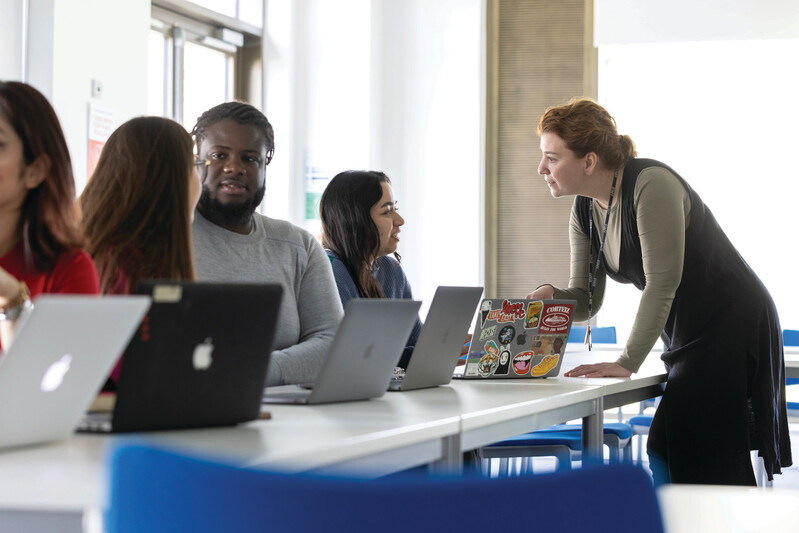Dr Vincent Miller is a reader in Sociology and Cultural Studies in the School of Social Policy, Sociology and Social Research and is an active researcher, writer, and teacher in the inter-disciplinary areas of digital culture/new media studies, social theory and cultural/social/urban spatial studies.
What would students get out of studying sociology?
Sociology, as I see it, is a problem-solving discipline. Sociology is about examining society, and the institutions and structures within society, not only to explain human behaviour and why society is the way it is, but to uncover, understand, and ultimately address problems in society or in those structures and institutions. Our world today faces unprecedented challenges, form environmental issues, to concerns over technology and where it’s heading, to issues about social justice at local and global scales, even to a society divided by questions about what is true and false. Sociology is uniquely capable of understanding and engaging with all of these issues and more, from large scale global issues to smaller scales, such as a business. Sociology gives you a contemporary understanding of the key issues facing society today; concepts and theories which help you to understand social structures and how they affect daily life from a variety of perspectives; training in research methods that allow you to collect, understand, analyse and interpret different kinds of data; a critical orientation which empowers you with the skills to identify and solve large and small problems, think creatively, and present and write effectively.
 How could studying sociology help students in their future careers?
How could studying sociology help students in their future careers?
Sociology is a discipline that cultivates critical thinking. What this means is that Sociologists are trained not to just accept things the way they are, but are constantly looking for how things can be improved, or uncovering problems that people might have not even been aware of. So, on the one hand the Sociology mindset is one in which the ability to think creatively and ‘out of the box’ is an advantage. Employers value such critical thinking skills because they can be applied to a wide variety of situations and problems, and ultimately read to improved performance. Sociology student are also trained in research skills: designing research, collecting data and analysing that data to ensure that their critical thinking skills are supplemented by skills in evidence-based research. Both of these skills are important, especially in an age where automation and AI is going to become more important within future employment. The skills obtained in a Sociology degree are original, flexible and creative, skills that AI cannot compete with.
What’s an interesting aspect of studying sociology that students might find surprising?
One thing that might surprise a prospective student is just how on top of current events and issues university-level Sociology is. Sociology as a discipline was at the forefront of studying the issues brought about by globalisation, for example. Now, sociology is way ahead of most social science disciplines in terms of understanding the affect of Artificial Intelligence and other advanced technologies on society. Not just from the economic standpoint of ‘jobs’, but also in terms of it’s ethics, the potential for discrimination and injustice, and its effects on human rights and human creativity, and even what it means to be human in these more technological scenarios. So sociology is really ahead of the game in this area.
What area of specialisation in sociology do you find most interesting and why?
I study digital technology and society, so unsurprisingly I find this area the most interesting. Technology is evolving very rapidly, pushed on by private industry in very intense competition… in many cases, technology is evolving far more rapidly than we expect and than our current societal institutions might be able to cope with. It is raising a lot of interesting questions about where all of this might end up, and whether it is reasonable or even possible to control how we use these technologies. It touched a lot of debates around equality, ethics, economic development, the nature of work, and the nature of creativity. These are interesting times!
What sort of experience could help a student looking to study sociology?
Apart from doing a Sociology A-level, life experiences are great for providing sociological insight. Travel, employment, voluntary work are all things that allow you to meet different people and see things from different perspectives, which is extremely useful for a sociology degree.

